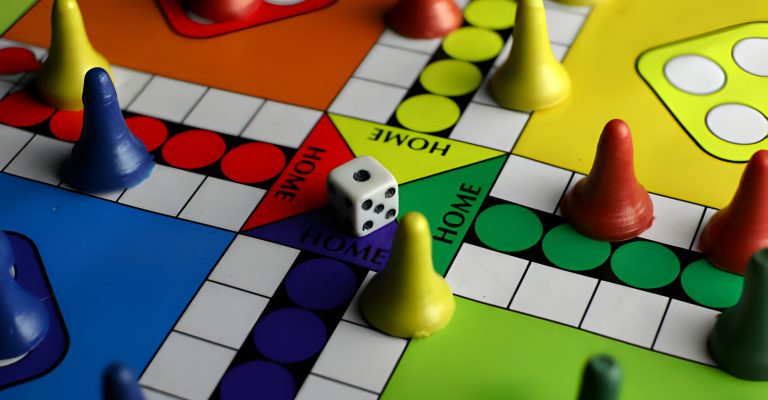A stroke changes a person’s physical ability, emotional steadiness, rationality, and communication. It is a change that is far too big to embrace on one’s own, but it demands the solidarity of at least friends and family and an effective recovery approach for the person who has had the stroke.
This has been seen as a good strategy for integrating games into stroke patients’ recovery processes. A well-thought-out game doesn’t just make an activity fun and decrease stress and anxiety; it also serves as an important tool for skill development, independence, and a holistic approach to health and wellness.
How Games Can Benefit Stroke Survivors
Games provide an active medium that reassembles and reinforces all the powers the strike touches, like motor abilities (voluntary movements of the body), cognitive abilities (including memory, learning, attention, decision-making, and language skills), and social interaction. Games that will actually encourage people to relearn those skills can also increase the level of involvement your loved one will have in his or her daily activities.
Games are not a mere pastime but a way to engage the brain in structured ways so that cognitive development occurs. Games are beneficial for a stroke survivor as they can:
- Enhance memory and the ability to retain.
- Help increase attention and concentration.
- Help in the development of problem-solving skills.
- Increase the processing speed of mental processing.
- Foster social interaction.
- Ensure achievement and motivation.
Games That Can Help People With Severe Stroke
Here are some amazing games specifically handpicked for patients who are up on their feet, recovering from a stroke, and dealing with substantial cognitive impairments. These games gently but helpfully challenge the patient’s memory and focus; thus, they help the patient engage without causing exhaustion.
Although these games are not designed for stroke recovery alone, they have been able to activate very basic cognitive skills significantly. As a result, stroke patients can see a rise in their mental abilities, which will go a long way toward driving them toward more self-independence in their daily lives.
Game 1: Memory Match
Memory match puzzles are good for enhancing the short-term memory of a stroke patient. Flipping over cards to look for pairs is an activity that will stimulate the hippocampus, the part of the brain involved in creating new memories. Start with simple pairs, then gradually increase the level of the game in proportion to the patient’s improvement.
Game sessions should be paced according to individual preferences, as everyone is different in their endurance, stamina, and comfort. The sense of accomplishment with completing a game can boost confidence and motivate more cognitive engagement. Furthermore, these types of games can be single players or with the help of a helper, so it can allow for some socialization and cooperative interactions.
Game 2: Sudoku
Sudoku is a game of filling a grid with numbers so that every column, row, and section contains every digit from 1 to 9. Its solution is based on logical reasoning, pattern recognition, and sequential thinking—fields of cognition that often have deficits after a stroke. A systematic use of Sudoku could support concentration and mental flexibility.
Large-print Sudoku books are available for beginners and those with impaired fine motor skills. At the same time, digital versions provide Sudoku with touch-screen capabilities.
Like any other game, the game player will improve over time and be able to graduate to more demanding puzzles to keep the brain involved at an optimal level. Make sure this game is not overstimulating while avoiding frustration.
Game 3: Crossword Puzzles
Crossword puzzles are among the classics of the time. They are very helpful in enhancing verbal skills, vocabulary enrichment, and executive functioning. A person with a stroke history can find connections between words, partake in problem-solving, and think critically about clues shown on the puzzle. Also, motivating players to challenge puzzles that are interesting to them because of personal relevance could very effectively increase motivation.
Other benefits include larger print that is easier on the eyes when reading and electronic versions that can include many levels of difficulty in one puzzle. Another benefit of crossword puzzles with someone else is that it encourages conversation and joint strategic thinking when done with a caregiver or family member. Due to their flexibility, crossword puzzles are an exceptional tool for cognitive development.

Game 4: Jigsaw Puzzle
Jigsaw puzzles require that the shapes and colors be sorted and the larger picture fit them together in one’s mind. This activity could help stroke survivors improve hand-eye coordination and their ability to visualize spatial relationships while exercising those areas of the brain.
Choose between low and high-complexity puzzles: from simple (with larger pieces and fewer elements) to complex (small, many elements). Working on jigsaw puzzles can be a calming, meditative experience that reduces stress while promoting cognitive health.
It’s a game that can be left hanging and resumed after quite a number of hours because it fits into the routine of the stroke survivors themselves and those around them. Solving a puzzle gives rise to an actual object, representing completion, an obvious reward.
Game 5: Trivia Quizzes
Trivia quizzes target long-term memory recall and can, for stroke patients, be an avenue for retrieval of former knowledge that is fun and interesting. The trivia can be history, pop culture, science, or sports trivia. It can be tailored to whatever interests the player and matches up with their cognitive stamina.
Trivia in a group setting also boosts socialization. It creates a lively environment where cognitive challenges are nestled into a community experience. Playing trivia in a group situation provides wonderful positive social engagement for mood and overall mental health.
Game 6: Board Games
These include chess, checkers, and Scrabble. Board games are recommended for executive function brain activity in problem-solving, planning, and decision-making. They demand strategic thinking while building anticipation into players’ actions in relation to the dynamic change of status of a game at any moment.
Classic board games can be customized for stroke survivors in cases where fine motor skills or visual issues arise, necessitating large print or magnetic pieces. Another alternative would be to play against a computer or virtual opponent, making it a high-caliber, stress-free experience.
Game 7: Charades
Charades is a body and cognitive game involving fun, laughter, and social interaction in a situation whereby more than one party participates. It also includes participants communicating non-verbally using gestures and facial expressions to guess the correct answer.
Furthermore, this game can help stroke survivors increase their communication skills, body awareness, and expressive emotions. For instance, if it were included as a part of group therapy or an informal get-together, it would ensure bonding and cooperation among group members and serve as cognitive exercise.

Game 8:Memory Lane
The game can be very versatile. The participant is asked to make a timeline and mark major events in his or her life, such as when his or her children were born, when he or she graduated from college when he or she got his or her first job, and similar. That said, this game can promote the recall of long-term memory and also promote reflection on experiences in life that shape personal identity.
The Memory Lane game gives a patient emotional satisfaction from a sense of doing something right, positively influencing a person’s sense of self-worth. The game also provides an environment for reminiscence therapy, leading to mood upturn and well-being.
Game 9: Solitaire
This one-player game can be played from anywhere, whether with cards or online. In both cases, a player must arrange the shuffled deck of cards in a particular manner.
Solitaire is a very old and classic card game that anyone can play. It provides mental stimulation and relaxation to the player by enhancing one’s total concentration and brain use.
For stroke survivors with impaired fine motor skills, the game could be adapted to use larger cards, be electronic, or some other similar adaptation. This may be a great game for concentration, and it creates a calm sense of achievement while hardly playing it. Besides all those, it is easy to do anywhere at any time.
Game 10: Word Games
Word games such as boggle, scrabble, or Bananagrams improve cognitive flexibility, word-finding skills, and spelling. Playing these games can also be accomplished by making the player think and allowing them to practice expressing their thoughts within the given time limit, hence a more extensive vocabulary.
Suppose you are playing with a stroke patient or even some other person who is suffering from low speech. In that case, you can play this game through pictures or representations through the movement of your fingers and hands. Word games can also be played in a group to carry out a bit of socialization and slight competitiveness.
Bottomline
These games can also easily be adapted to all abilities and are very effective for stroke survivors, irrespective of their stage of recovery. They are also a lot of fun and provide a good mental workout, with the big bonus of learning new words.
Games are both fun, and they could also play a good role in the cognitive health of stroke survivors: they stimulate many areas of the brain, promote socialization, and offer emotional well-being.
And the fun part is that with such a great variety, there is always a game that can meet individual requirements and interests. Why not include some of these games in your daily routine and get cognitive benefits from them today?
Above all, the ways games can be incorporated into stroke recovery therapy are limitless. Therefore, it is one of the options to look out for to improve cognitive skills and overall well-being. Do not avoid trying various games; thus, be creative to achieve the best game or approach for you or your loved one.


